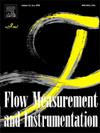Gas-liquid two-phase flow measurement using dual-plane REFCS coupling the stacking ensemble learning
IF 2.3
3区 工程技术
Q2 ENGINEERING, MECHANICAL
引用次数: 0
Abstract
Gas-liquid two-phase flow, a common multiphase flow, is widely present in petrochemical industry, aerospace technology, electric power generation, biopharmaceutical aspect, and other fields. Due to the complexity, randomness, and instability of its flow structure, accurate measurement of the gas-liquid two-phase flow parameter remains a challenging problem. For these above problems, in this study, an integrated sixteen-electrode dual-plane rotating electric field conductance sensor (DPREFCS) is designed for acquiring abundant flow information of gas-liquid two-phase flow in both time and space. Then a dual-parameter mixed boosting prediction model based on the Stacking ensemble learning algorithm is established for measuring the gas volume fraction and liquid volume flowrate of gas-liquid two-phase flow. The final prediction results illustrate this method can effectively measure the two parameters of gas-liquid two-phase flow, which provides a new approach for the multi-parameter measurement method of gas-liquid two-phase flow.
基于双平面REFCS耦合叠加集成学习的气液两相流测量
气液两相流是一种常见的多相流,广泛应用于石油化工、航空航天、发电、生物制药等领域。由于其流动结构的复杂性、随机性和不稳定性,气液两相流动参数的精确测量一直是一个具有挑战性的问题。针对上述问题,本研究设计了集成式十六电极双平面旋转电场电导传感器(DPREFCS),以获取气液两相流在时间和空间上丰富的流动信息。然后建立了基于叠加集成学习算法的双参数混合增压预测模型,用于测量气液两相流的气体体积分数和液体体积流量。最后的预测结果表明,该方法可以有效地测量气液两相流的两个参数,为气液两相流的多参数测量方法提供了新的途径。
本文章由计算机程序翻译,如有差异,请以英文原文为准。
求助全文
约1分钟内获得全文
求助全文
来源期刊

Flow Measurement and Instrumentation
工程技术-工程:机械
CiteScore
4.30
自引率
13.60%
发文量
123
审稿时长
6 months
期刊介绍:
Flow Measurement and Instrumentation is dedicated to disseminating the latest research results on all aspects of flow measurement, in both closed conduits and open channels. The design of flow measurement systems involves a wide variety of multidisciplinary activities including modelling the flow sensor, the fluid flow and the sensor/fluid interactions through the use of computation techniques; the development of advanced transducer systems and their associated signal processing and the laboratory and field assessment of the overall system under ideal and disturbed conditions.
FMI is the essential forum for critical information exchange, and contributions are particularly encouraged in the following areas of interest:
Modelling: the application of mathematical and computational modelling to the interaction of fluid dynamics with flowmeters, including flowmeter behaviour, improved flowmeter design and installation problems. Application of CAD/CAE techniques to flowmeter modelling are eligible.
Design and development: the detailed design of the flowmeter head and/or signal processing aspects of novel flowmeters. Emphasis is given to papers identifying new sensor configurations, multisensor flow measurement systems, non-intrusive flow metering techniques and the application of microelectronic techniques in smart or intelligent systems.
Calibration techniques: including descriptions of new or existing calibration facilities and techniques, calibration data from different flowmeter types, and calibration intercomparison data from different laboratories.
Installation effect data: dealing with the effects of non-ideal flow conditions on flowmeters. Papers combining a theoretical understanding of flowmeter behaviour with experimental work are particularly welcome.
 求助内容:
求助内容: 应助结果提醒方式:
应助结果提醒方式:


